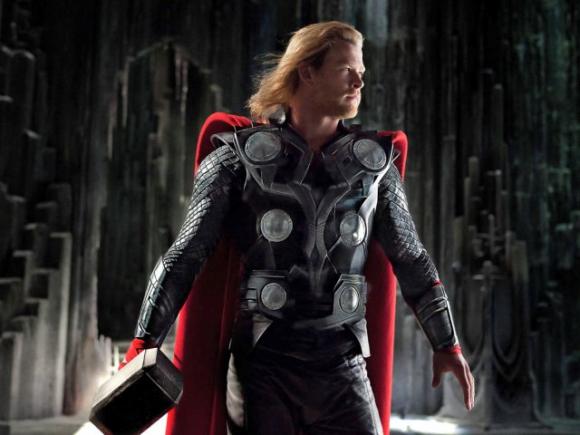 |
| "There's only one God, ma'am, and I'm pretty sure he doesn't dress like that." -- Captain America, The Avengers |
The Hebrew God is therefore unique not only because he is the only God of the Hebrews–and pure monotheism is in itself an innovation in the development of religion in the ancient near East–but it is also unique because it is a highly philosophical and metaphysical concept for the divinity. The other pagan god developed from certain earth powers which were personalized or from certain astral or supernatural beings who controlled certain forces of nature. The Hebrew God, on the other hand, is ‘He Who IS” or “He who is existence.”
This is an important distinction to make therefore when discussing the existence of God. Theists often refer to God as ‘the Supreme Being’. This is incorrect from a Judeo-Christian point of view. God is not the Supreme Being–as if he were the biggest person of all, or even the one who was before all and caused all. Any idea therefore that God is some sort of super magical being in the sky is in fact a straw man in the sky because Christians, Jews and Muslims don’t believe in God in that way. Instead he is what St Thomas Aquinas calls the ipsum esse subsistens. (Subsistent Act of Existing Itself) God, according to the scholastics, is not only existence itself, but the ground and source of all existence. That this definition is first revealed to the Hebrews within the divine tetragrammaton elevates Yahweh of the Hebrews into a new and unique dimension of divinity.
Furthermore, it is God’s being ipsum esse subsistens that explains the seeming contradiction of God’s transcendence and immanence. Aquinas argues that God is most transcendent from, and most immanent in creation for the very same reason–that he is that existence that is beyond all existing things and yet the cause in and through all created things–being therefore transcendent and immanent at the same time.
We see here a convergence between the God of the philosophers and the Judeo-Christian God, between natural theology and revealed theology, between Athens and Jerusalem, between "Subsistent Being itself " and "He Who IS." As I said before, the new atheist really needs to do his homework and study what educated theists actually believe before he throws out such straw men like the Flying Spaghetti Monster, Flying China Teacup, Irate Lunar Unicorns, and a cosmic superman (who, incidentally, might also be found in contemporary "theistic personalism").
 |
| Princess Luna, you're really powerful and awesome and all that, but you're still just a creature like the rest of us compared to the One who is really worthy of worship, the real "Love that moves the sun (and moon) and all the stars." |
Ed Feser, who's blogged quite a storm answering new atheist caricatures of God, makes further points regarding the significant differences between classical theism and pagan demi-gods like Zeus or Thor (for all you Marvel Comics aficionados!). Consider the interesting observation that the God of Augustine, Anselm and Aquinas could exist along with Zeus and Thor, as the latter two are mere creatures, contingent beings that are mixtures of act and potency, with essences separate from their existence that must be combined by another. The God of classical theism, of course, being pure act, whose essence is existence, would depend on nothing else to exist (aseity), while conversely, everything else other than God would depend on God for existence, including "demi-gods" like Zeus and Thor.

No comments:
Post a Comment